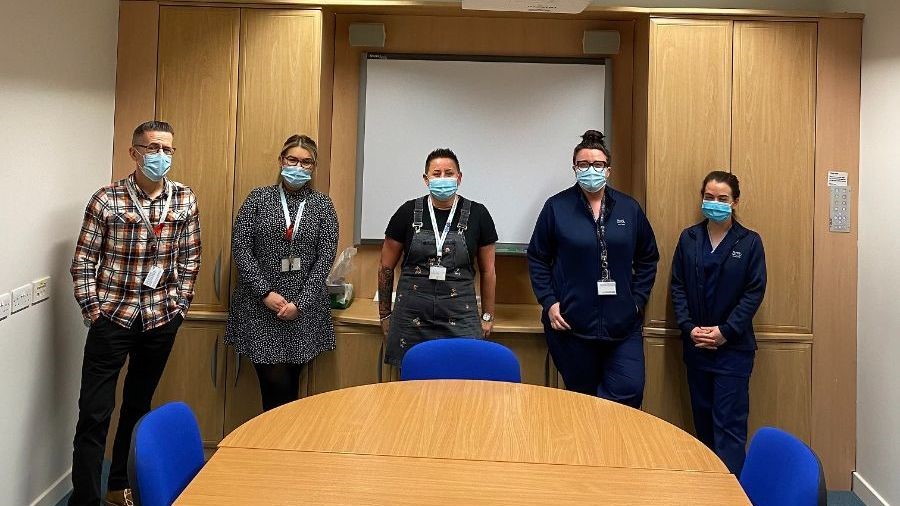
It’s said to be the most wonderful time of the year, but for some of Glasgow’s most vulnerable communities, Christmas can be something which is endured, rather than enjoyed. But Glasgow’s Complex Needs team are working hard to bring hope and cheer during the festive period.
Glasgow City’s Health and Social Care Partnership’s Complex Needs Service – previously known as the Homeless Health Service – support around 450 people at any one time. The people they see often have addiction issues, mental health issues and often really poor physical health.
Lisa Ross, Service Manager at the service, said: “Our clients are vulnerable anywhere, anytime of the year, but Christmas is probably one of the highest risk times. Pharmacies may be closed over public holidays and clients may have less supervision and support for medications such as methadone.
“What we do is just make sure people are as safe as possible and keep people on their treatment plans as best we can – we do this using our assertive outreach approach.”
Even during lockdown, the service has remained open throughout and, indeed, has increased its face to face contacts. Lisa added: “We had a real concern about how many people would survive COVID within our client group, because all of them had underlying health problems and difficulties in engaging.”
The initiative to house homeless people in hotels allowed the team to increase engagement which has delivered a positive legacy.
“In terms of COVID, we were expecting a high fatality rate and we didn’t see that,” Lisa commented.
“Within this specific client group, our drug deaths significantly reduced last year in comparison to 2019 and we’ve seen that continue through 2021 and I’m hopeful that continues. Our team are really passionate about who we work with – it’s somebody’s daughter or son, somebody’s mum or dad. It could happen to any one of us and I would like to think that if that was me, someone would be there to support me, someone looking out for people. It’s so important to provide a service that is accessible for people at the time when they need it.”
Now the team are providing information on what services are available on Christmas Day and where people can go to access food. The team has also been providing food parcels and will do so right up to Christmas Eve.
“A lot of people find this time of the year difficult,” explained Lisa. “So at Christmas, if you have got less of a family network around, then you are going to find it tough. Sadly, that includes many of our clients where the only person in their lives is a paid professional, offering support. We’re very conscious of that. We want to mark Christmas, of course, but we’re very aware that it’s not a good time of year for everybody.”
The team were recently recognised at the Scottish Health Awards, winning the Public Choice Award. “It was really positive,” Lisa said. “I hope that means that views are shifting about the population we are supporting and the help that they need.”
Geraldine Lynch, manager at the Chara Assessment Centre – an emergency housing facility for women in Glasgow – says she and her team are doing everything to support their residents.
She said: “We try to make it as festive and as warm and positive as we can, bearing in mind it’s a tough time for many.”
There are 27 women in the unit – an emergency housing facility where women are accommodated and supported. Geraldine says that generally speaking 60% of the women in the unit may have faced domestic violence in their lives. Some of the women have been working with the Citizens Theatre and the actor and comedian, Karen Dunbar, on a Christmas showcase, writing songs and sketches, which helps to forge a sense of community.
COVID continues to impact. For Christmas dinner, instead of tables laid out like a restaurant, with the staff serving, this year it will be a Chinese take-out, after the residents voted on their preference. On Christmas Day, the staff will be working their normal, 12-hour shift.
Geraldine added: “It’s an important day for the women and the goal is to make it as warm and friendly as we can. A number of the women will have kids and for a lot of them, they won’t have access to their children which can be particularly difficult. Some of them will manage to get presents for their kids or might even get to see them, but it can be heart-breaking. So many are missing their families and often feeling really guilty about the situation they are in.
“Whatever they have been through, these women are still standing – put in the same situation, not many of us might be.”